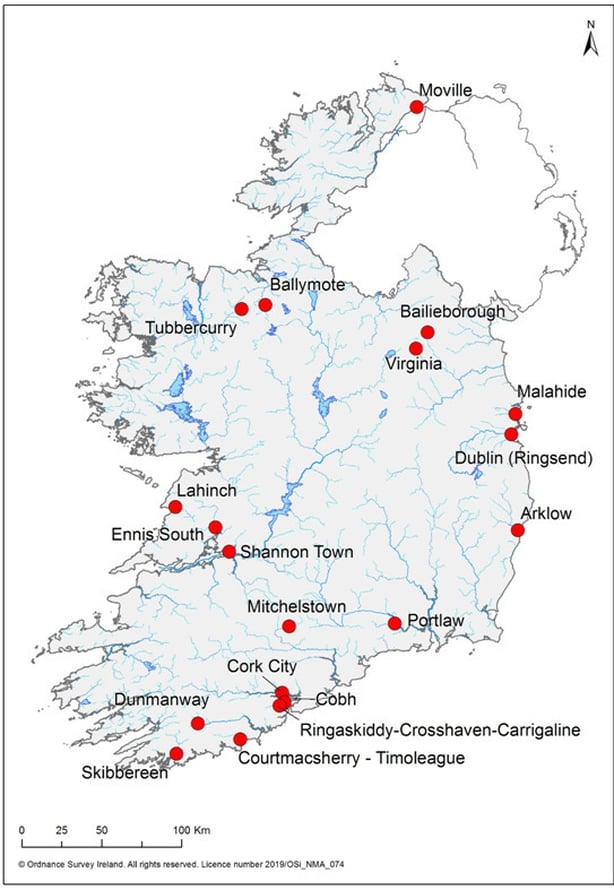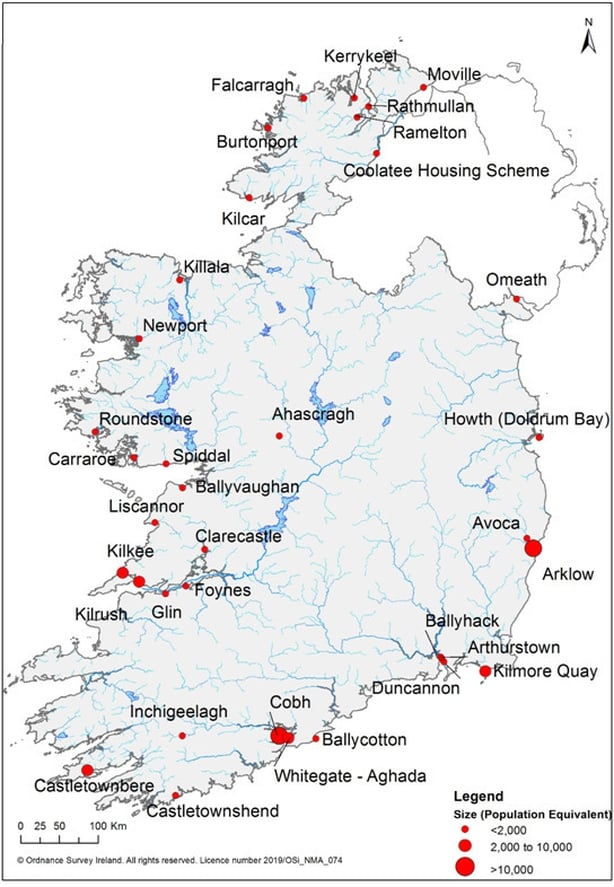The Environmental Protection Agency has said delays in upgrading wastewater treatment systems around the country are prolonging risks to the environment and public health.
A new report has said Irish Water is failing to treat wastewater to national and European Union standards.
According to the report, raw sewage from 35 towns and villages flows into our environment every day, with 33 areas unlikely to receive treatment until after next year.
It says treatment at 19 of Ireland's 172 large towns and cities, including Dublin and Cork, failed to meet standards set to prevent pollution. This is down from 28 over the past two years.
Overall, the EPA says there are 113 areas where priority action is needed to protect public health and the environment.
It adds that Irish Water has no clear plan to improve treatment at 23 areas where wastewater is a significant threat to waters.
However the report also says some improvements in performance were evident in the past year, with the removal of raw sewage discharges from one town and improvements in treatment at nine towns and villages.
Despite this, it says the utility has "repeatedly revised its plans" and "extended the time frame to provide treatment" for towns and villages including those that are discharging raw sewage.
In a statement, Irish Water said despite some delays they expect to start work next year in 12 more communities where raw sewage is being discharged, with the work in the majority of the remaining areas to start in 2022 and 2023.
Urban Waste Water Treatment in 2019 report
Speaking on RTÉ's Morning Ireland, the EPA's Director of Enforcement Dr Tom Ryan said raw sewage is flowing into rivers and seas in 33 places across Ireland and "that is the equivalent of wastewater coming from 78,000 people around the country".
He also said there are failures to meet European standards at nine larger towns and cities. One of the outstanding plants is Ringsend in Dublin which manages almost half of all wastewater in Ireland.
"And then there are around 43 areas around the country where the discharge of wastewater is the predominant threat to water quality in the area."

He said if those issues were resolved, water quality would improve dramatically in those places.
"What we need from Irish Water is the implementation of concrete realistic plans that incorporate the environmental priorities that we have identified."
The Ringsend plant is continually not meeting the required standards as it does not have the capacity to cope, he said.
However on the positive side he said there are some significant developments with phase one of an upgrade at Ringsend that should be completed by next year.
He said that will not bring it back to a level of compliance but hopefully it will happen by 2023 or 2024.
Dr Ryan said delays in upgrading wastewater treatment systems elsewhere around the country is a risk to the environment and public health.
He outlined the reality for people in coastal areas such as Castletownbere, Arklow, Spiddal or Moville who are waking up this morning to news of their area having sewage flowing into the water.
"They flushed their toilet, that toilet water goes into a local collection system and then discharged directly into the local harbour or estuary. That is happening all around the country."
Irish Water had committed to dealing with 30 of those by 2021 and that figure is now down to two, he said.
Those two areas are Cobh and Killalagh and he said good progress is being made with treatment plants expected to be in place by next year.

However, he said it means there are 33 other locations that will discharge raw sewage beyond 2021.
He said they want Irish Water to underline the causes for the delays.
The growing uncertainty in Irish Water’s planning and delivery was "undermining confidence in its capacity to reduce the risks to public health and the environment in a timely manner".
"Plans are only effective if implemented, and the inherent uncertainty of these plans is a serious cause of concern for the EPA," he added.
Progress made despite delays
The Managing Director of Irish Water has said the EPA report is correct and Irish Water is behind schedule in a lot of plans but said that a lot of progress has been made since the establishment of Irish Water in 2014.
Niall Gleeson said 130 areas have been taken from the priority list since 2014 while there are plans for the remaining 113, adding that a lot of delays stem from issues around statutory process, planning and land acquisition.
Speaking on the same programme Mr Gleeson pointed out that work will begin on the Arklow plant next year and that planning for this project originally began in 1993 and was stuck in legal challenges for 15 years.
This shows there is a ten year process to get plants up and running, he said.
While everyone wants waste water treatment in their village or town, Mr Gleeson said, no one wants it beside their house or business.
He said Irish Water is in the process of spending €500m upgrading the Ringsend plant and it will be upgraded to cope with a population of 2.4 million by 2024.
Irish Water is doing "as much as it can, as fast as it can" in Ringsend, he said, because it is very aware of the challenges there but it is complex to keep a plant running while upgrading it simultaneously.
Mr Gleeson said internal processes are being examined in order to get planning prediction right, admitting that Irish Water may have been too optimistic in some of its targets.
He added that another cycle will begin in 2024 and Irish Water will make sure that it forecasts accurate targets that will be met.







